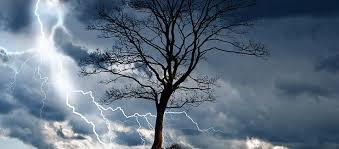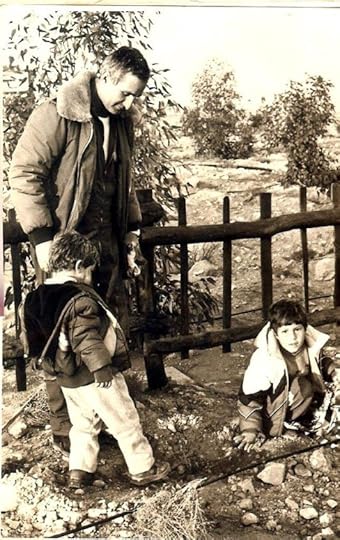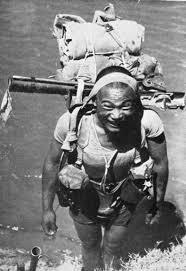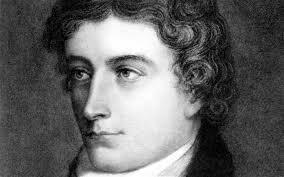Steven Pressfield's Blog, page 12
September 6, 2023
Resistance is Infallible
I wrote in a post a few weeks ago that
Resistance knows more than we do.
What I meant by that was that our Inner Self-saboteur, by some mysterious alchemy or algorithm, can tell when we are onto something good. It can even tell how good it is.
Resistance responds accordingly.
The better the piece we’re working on (and by “better,” I mean “more important to the evolution of our soul and to our progression as an artist”), the more Resistance we will feel to advancing it and to completing it.
 Resistance is a Force of Nature
Resistance is a Force of NatureIn other words,
Good Idea = Big Resistance.
Great idea = Humongous Resistance.
Let me add a further corollary.
Our progression as artists or entrepreneurs never happens in a smooth upward line. Instead, we get better in stair-step fashion, i.e. plateau plateau plateau, then … breakthrough!
Thus:
Pre-breakthrough moment = super-humongous Resistance.
Resistance is a mighty and diabolical enemy, but it has a weakness. Its weakness is that it’s a force of nature and thus operates by fixed and immutable laws. Resistance is predictable.
The more Resistance we feel to a project or idea, the more certain we can be that that idea is critical to the evolution of our soul.
And the more certain we can be that that idea is GOOD.
So, brothers and sisters, when we feel ourselves becoming irritable and impatient for no reason, when we can’t sleep and we’ve lost our appetite (or our appetite has mysteriously doubled), when we can’t stand to face the typewriter or the dance studio or the editing suite, when the lamest distractions pull us irresistibly off-course, when we hate ourselves and everything around us … take heart. It’s Resistance! And its message is:
That idea you’re working on, honey?
It’s a winner. Suck it up and go for it!
Resistance is infallible.
The post Resistance is Infallible first appeared on Steven Pressfield.August 30, 2023
Sh*t doesn’t just happen
My friend Tony has a theory about accidents, i.e. fender-benders, sprained ankles, etc. He believes they’re the body’s way of grounding us when we get too far into our own heads.
An accident, Tony would say, should make us ask, “What’s going on in my life? Have I floated too far away into airy-fairy land?”

My own theory is parallel in that, like Tony, I don’t believe accidents are “accidental.”
I think accidents are a form of Resistance.
(I include minor maladies like colds or sore throats or mild fevers, particularly when they come on the heels of other mishaps and random impairments.)
I think accidents are our Inner Saboteur’s way of throwing us off our game, of presenting us with excuses to slack off or even stop entirely our pursuit of our current project or vision.
An example from my life right now: I recently hurt myself at the gym. Nothing serious—a tweaked shoulder—but enough to put me in pain and make me change the way I worked out. Then I got sick. Again nothing life-threatening … a virus or something that hung around for a week or ten days. Meanwhile my sleep was off. You get the picture.
I labored under this low-level stress/pain-in-the-ass for a couple of weeks before the thought hit me, “I wonder if this is Resistance.”
My conclusion? It was.
I thought, “I’m at a really tough part of a piece of fiction I’m working on now … two-thirds of the way through a fourth draft, where the thing is starting to wobble off the tracks. Enough that it worries me. I may have screwed the pooch on this section. I’m getting scared.”
Then I thought further, “Shit happens like this when you’re about to break through to something good.”
I decided to go with that self-diagnosis. This constellation of ills, I concluded, is Resistance. And since Resistance is infallible in the sense that it ramps up its power specifically when it senses that you or I are about to break through to a higher level … I took heart.
I told myself, “This is a good thing.” And I tore apart the section I was working on and re-did it in a new and (hopefully) better way.
My shoulder still hurts but I’m sleeping well again … and I’m definitely happier with the new version of that hard part at the end of Act Two.
Our psyches communicate with us in many odd languages. Shit doesn’t just happen.
The post Sh*t doesn’t just happen first appeared on Steven Pressfield.August 23, 2023
Training = Turning pro
[Special thanks to Maxima Kahn for bringing back one of my favorite posts. And even more special thanks to Rosanne Cash for inspiring it. Here it is:]
Amateurs have amateur habits. Pros have professional habits.
How does the pro acquire professional habits?
By training.
(The amateur by contrast either trains like an amateur or doesn’t train at all.)
The passage below comes from Rosanne Cash’s wonderful 2011 memoir, Composed.
 Rosanne Cash, post-training
Rosanne Cash, post-trainingFrom that moment I changed the way I approached songwriting, I changed how I sang, I changed my work ethic, and I changed my life. I sought out Marge Rivingston in New York to work on my voice and I started training, as if I were a runner, in both technique and stamina. I started paying attention to everything, both in the studio and out. If I found myself drifting off into daydreams–an old, entrenched habit–I pulled myself awake and back into the present moment. Instead of toying with ideas, I examined them, and I tested the authenticity of my instincts musically. I stretched my attention span consciously. I read books on writing by Natalie Goldberg and Carolyn Heilbrun and began to self-edit and refine more. I went deeper into every process involved with writing and musicianship. I realized I had earlier been working only within my known range–never pushing far outside the comfort zone to take any real risks. I started painting, so I could learn about the absence of words and sound, and why I needed them. I took painting lessons from Sharon Orr, who had a series of classes at a studio called Art and Soul.
There’s a word for the changes Rosanne incorporated into her life.
Training.
And another one: Turning pro.
I remained completely humbled by the dream [that had precipitated these external changes] and it stayed with me through every waking hour of completing King’s Record Shop … I vowed the next record would reflect my new commitment. Rodney [Crowell, Rosanne’s then-husband] was at the top of his game as a record producer, but I had come to feel curiously like a neophyte in the studio after the dream. Everything seemed new, frightening, and tremendously exciting. I had awakened from the morphine sleep of success into the life of an artist.
When we take ourselves and our artistic aspirations seriously, we resolve to move from working like an amateur to working like a pro.
We ask ourselves, “How can I get better? What do I have to do to become a worthy vessel for my gift? How can I elevate myself from where I am now to the higher, truer, more realized artist I know I can be?”
There’s a word for that answer.
It starts with a “T.”
The post Training = Turning pro first appeared on Steven Pressfield.August 16, 2023
“Dvekut baMesima”
As a 22-year-old lieutenant, Giora Romm became the first fighter pilot ace (shooting down five enemy planes) of the Israel Air Force during the Six Day War of 1967. It was my great good fortune and honor to have met Giora and interviewed him (and his wife Miriam) for The Lion’s Gate (Penguin Sentinel 2014). Giora passed away this Saturday after a long battle with cancer. He was 78.
In honor of this great and good man, I’m excerpting below a part of one of “his” chapters in The Lion’s Gate. I cite this specific passage because, although Giora is speaking of the mindset of a fighter pilot, what he’s saying applies equally to you and me as writers and artists.
 Giora Romm in 1983 with sons Assaf and Yuval
Giora Romm in 1983 with sons Assaf and YuvalThe passage is Giora speaking:
When I was fifteen, I applied for and was accepted into a new military boarding school associated with the Reali School in Haifa. The Reali School was the elite high school in Israel. The military school was a secondary school version of West Point. We attended classes at Reali in the morning and underwent our military training in the afternoon.
I don’t believe there is an institution in Israel today that can measure up to the standards of that school. Why did I want to go there? I wanted to test myself. At that time in Israel the ideal to which an individual aspired was inclusion as part of a “serving elite.” The best of the best were not motivated by money or fame. Their aim was to serve the nation, to sacrifice their lives if necessary. At the military boarding school, it was assumed that every graduate would volunteer for a fighting unit, the more elite the better. We studied, we played sports, we trekked. We hiked all over Israel. We were unbelievably strong physically. But what was even more powerful were the precepts that the school hammered into our skulls.
First: Complete the mission.
The phrase in Hebrew is Dvekut baMesima.
Mesima is “mission”; dvekut means “glued to.” The mission is everything. At all costs, it must be carried through to completion. I remember running up the Snake Trail at Masada one summer at 110 degrees Fahrenheit with two of my classmates. Each of us would sooner have died than be first to call, “Hey, slow down!”
Second: Whatever you do, do it to your utmost. The way you tie your shoes. The way you navigate at night. Nothing is academic.
Third: En brera. “No alternative.”
We are Jews; we are surrounded by enemies who seek our extinction and the extinction of our people. There is no alternative to victory.
Fourteen months after the Six Day War, over the Nile Delta, an Egyptian missile exploded beneath the tail of Giora’s Mirage IIIC. Within moments, Romm found himself hanging by the straps of his parachute, with a broken arm and a leg shattered in a dozen places, looking down from 10,000 feet. Streams of farmers and field workers converged below onto the spot toward which his chute was descending, with the intention, he was certain, of hacking him to death as soon as his feet touched the earth.
No Israeli pilot had survived capture in Egypt or in any other Arab state. Giora was the first. His book, Solitary, (in Hebrew, “Tulip Four,” for his plane’s call sign), is his story of his imprisonment, torture, interrogation, release, and return to service.
 “Solitary,” Giora’s true story of his captivity as a POW in Egypt
“Solitary,” Giora’s true story of his captivity as a POW in EgyptIn my mind, Solitary is a classic of the literature of war. It was my privilege, and my publishing partner Shawn Coyne’s, to bring it out in English translation (by Anne Hartstein Pace) in 2014.
But above and beyond Giora’s heroics in the air and in captivity, he was a great guy, funny, charming, not at all impressed with himself. He never hated the enemies outside his country or those of opposing agendas within, but always (he retired as a two-star general, having served as well as military attache to the Israeli consulate in the US) looked for common ground. I salute you, Giora. You were the best of the best.
The post “Dvekut baMesima” first appeared on Steven Pressfield.August 9, 2023
Self-doubt, Part 4
A story from WWII:
In the early fighting in Southeast Asia, the Japanese were seriously kicking the British Army’s butt. Things had reached such a desperate pass that an entire division, including its Gurkha components, had to be airlifted 1500 miles to safety—an emergency evacuation, though smaller, nearly on a par with Dunkirk.
 A Gurkha soldier of WWII
A Gurkha soldier of WWIIBut one Gurkha sergeant had been accidentally left behind. The poor guy was alone, with no radio, no compass. He had only his rifle and a map. The distance between him and his brothers-in-arms was unfathomable, across trackless jungle with which he was totally unfamiliar, to a needle-in-a-haystack place he had never been. He set off nonetheless.
Short version: nine months later, the Gurkha sergeant staggered into the base to which his division had been evacuated. He was barefoot, emaciated, sick with every kind of tropical disease imaginable. But he had miraculously made it! His mates swamped him ecstatically. His British colonel saluted him and made plans to honor his incredible achievement. Surely the sergeant’s feat was the greatest solo walking escape in the history of warfare.
The Gurkha sergeant spoke little English. but he was able to communicate his feelings to the colonel and his officers. He did not see his 1500-mile trek as particularly exceptional. After all, he said, “I had a map.”
He handed the map to the colonel. The paper was falling apart, the map itself torn and ragged and stained with jungle mud and dirt. “This is the map you used?” the colonel asked.
“Yes, sir.”
“The only one?”
“Yes, sir.”
The colonel held the map up for his officers to see. “This is a city map of London!”
Here’s the moral of the story, as I see it:
Self-belief (no matter how crazily-founded or materially divorced from reality) plus instinct plus grit may be the most powerful antidote to self-doubt.
The post Self-doubt, Part 4 first appeared on Steven Pressfield.August 2, 2023
Self-doubt, Part 3
There are certain skills that must be mastered by every writer, artist, entrepreneur, and athlete if she or he wishes to succeed. These skills are not taught in school. Many don’t even have a name.
These skills are not about craft. They’re about management of emotion. I’ve heard them called “soft skills,” though to me they’re anything but “soft.”
One of them is the ability to keep going when in the throes of desperate self-doubt.
 John Keats, 1795-1821
John Keats, 1795-1821Keats called this skill “negative capability.” From a letter to his brothers, George and Thomas, in 1817:
I had not a dispute but a disquisition with Dilke (Charles Wentworth Dilke, a writer and editor whose home in London, Wentworth Place, is now called Keats House—a museum to the great Romantic poet), upon various subjects; several things dove-tailed in my mind, and at once it struck me what quality went to form a Man of Achievement, especially in Literature, and which Shakespeare possessed so enormously—I mean Negative Capability, that is, when a man is capable of being in uncertainties, mysteries, doubts, without any irritable reaching after fact and reason … This pursued through volumes would perhaps take us no further than this, that with a great poet the sense of Beauty overcomes every other consideration, or rather obliterates all consideration.
My own poster boy for this skill is Christopher Columbus. Talk about uncertainties, mysteries, and doubts! “OMG, what if the world really is flat? Will my ships sail off the edge? No, that’s ridiculous. I know the world is round. But what if I miss the Indies? What if my course is too far north? Or south? Maybe the wise move is to sail back home … right NOW!!!”
The thing about soft skills like this—the ability to follow your vision when every cell in your body is revolting against this—is there’s no glamor to them. They’re boring. They’re quotidian. They’re the scenes we would cut out of a movie.
But they are the way we defeat our own Resistance.
Sit down. Get to work. Don’t stop.
Nobody gives you points for this stuff. No one cheers. No one even knows. The reason soft skills are so hard is they’re totally internal, producing no reward except that which we give ourselves.
A thought experiment:
Which writer/filmmaker/athlete/entrepreneur would you and I bet on?
The post Self-doubt, Part 3 first appeared on Steven Pressfield.
1. A one-in-a-million talent, but one who habitually faltered when confronted by self-doubt.
2. A far more modestly gifted performer, but one who could buckle up each day, no matter what emotional headwinds he or she was facing, and keep grinding.
July 26, 2023
Self-doubt, Part 2
We said in last week’s post that self-doubt was simply Resistance. And that the stronger it was, the more certain we could be that we were on the right track.
In other words, Resistance knows more than we do.
Resistance knows (don’t ask me how) how potentially good our work-in-progress is. By some infallible mode of calculation, Resistance can sense when you and I are onto something.
Its response: inflict us with self-doubt in inverse proportion to how potentially good our work might be.
The better the work-in-progress might be, the more Resistance we will feel to doing it.
But there’s another entity who also knows how good our work-in-the-making might be.
The goddess knows.
 The Muse knows, even if you and I do not.
The Muse knows, even if you and I do not.When I was working on The Legend of Bagger Vance, I was absolutely certain that no one would be interested in it but me. Two weeks after I sent the manuscript in to my agent, we had a book deal—my first one ever. And a week after that, a movie contract was in the works.
I felt the same way about Gates of Fire. That was 1.2 million copies ago.
In other words, the intense self-doubt I was feeling in both cases was absolutely wrong.
Worse than that, it was an insult to the Muse.
The goddess knows what she’s doing, even if you and I don’t. Our job is to trust her.
No matter how intense the feelings of self-doubt we’re experiencing, we must keep plowing ahead. As Paramahansa Yogananda said about thoughts of faltering or giving in, “You must dismiss them!”
The goddess knows, even if you and I do not.
The post Self-doubt, Part 2 first appeared on Steven Pressfield.Self-doubt #2
We said in last week’s post that self-doubt was simply Resistance. And that the stronger it was, the more certain we could be that we were on the right track.
In other words, Resistance knows more than we do.
Resistance knows (don’t ask me how) how potentially good our work-in-progress is. By some infallible mode of calculation, Resistance can sense when you and I are onto something.
Its response: inflict us with self-doubt in inverse proportion to how potentially good our work might be.
The better the work-in-progress might be, the more Resistance we will feel to doing it.
But there’s another entity who also knows how good our work-in-the-making might be.
The goddess knows.
 The Muse knows, even if you and I do not.
The Muse knows, even if you and I do not.When I was working on The Legend of Bagger Vance, I was absolutely certain that no one would be interested in it but me. Two weeks after I sent the manuscript in to my agent, we had a book deal—my first one ever. And a week after that, a movie contract was in the works.
I felt the same way about Gates of Fire. That was 1.2 million copies ago.
In other words, the intense self-doubt I was feeling in both cases was absolutely wrong.
Worse than that, it was an insult to the Muse.
The goddess knows what she’s doing, even if you and I don’t. Our job is to trust her.
No matter how intense the feelings of self-doubt we’re experiencing, we must keep plowing ahead. As Paramahansa Yogananda said about thoughts of faltering or giving in, “You must dismiss them!”
The goddess knows, even if you and I do not.
The post Self-doubt #2 first appeared on Steven Pressfield.July 19, 2023
Self-doubt, Part 1
Have you ever met a writer (usually a very young one) who tells you, “I love to write! I can’t wait to sit down each morning. I love everything about it!”
My first thought: “Either this guy is crazy … or he’s living in a dimension with which I am not familiar.”
Likewise, I’ve encountered writers who will tell you of their work-in-progress, “It’s dynamite! Readers are gonna love it!”
Again I think, “What planet does this dude inhabit? Because it sure ain’t the one I live on.”
 “Wait till you see what I’m doing with Twitter. It’s gonna be FAN-tastic!”
“Wait till you see what I’m doing with Twitter. It’s gonna be FAN-tastic!”Here’s my mantra re self-doubt:
If I’m not crippled with self-doubt for at least the first nine months of a project (and sometimes a lot longer), something is wrong.
You and I should be feeling self-doubt.
We should be terrified.
1. Because self-doubt comes (often) from trying to second-guess readers’ response to what we’re writing.
We can’t do that. Nobody can. William Goldman was 100% right when he said, “Nobody knows anything.”
2. But the main freight of self-doubt is simply Resistance, i.e. our own self-sabotage. And the First Law of Resistance is:
The more important a project is to the evolution of our soul, the more Resistance we will feel to it.
In other words, self-doubt is good. Massive self-doubt tells us that our Resistance, sensing the positive power of the book/screenplay/painting/dance/symphony we are working on, has pulled out all the stops, trying to undermine us and make us give up.
When I ask a writer of her current project, “How’s it going?”, the answer I want to hear is, “I hate it … I’m so confused … I have no idea what I’m doing … this is going to be a disaster!”
If you and I ain’t feeling self-doubt, we ain’t working.
The post Self-doubt, Part 1 first appeared on Steven Pressfield.Self-doubt #1
Have you ever met a writer (usually a very young one) who tells you, “I love to write! I can’t wait to sit down each morning. I love everything about it!”
My first thought: “Either this guy is crazy … or he’s living in a dimension with which I am not familiar.”
Likewise, I’ve encountered writers who will tell you of their work-in-progress, “It’s dynamite! Readers are gonna love it!”
Again I think, “What planet does this dude inhabit? Because it sure ain’t the one I live on.”
 “Wait till you see what I’m doing with Twitter. It’s gonna be FAN-tastic!”
“Wait till you see what I’m doing with Twitter. It’s gonna be FAN-tastic!”Here’s my mantra re self-doubt:
If I’m not crippled with self-doubt for at least the first nine months of a project (and sometimes a lot longer), something is wrong.
You and I should be feeling self-doubt.
We should be terrified.
1. Because self-doubt comes (often) from trying to second-guess readers’ response to what we’re writing.
We can’t do that. Nobody can. William Goldman was 100% right when he said, “Nobody knows anything.”
2. But the main freight of self-doubt is simply Resistance, i.e. our own self-sabotage. And the First Law of Resistance is:
The more important a project is to the evolution of our soul, the more Resistance we will feel to it.
In other words, self-doubt is good. Massive self-doubt tells us that our Resistance, sensing the positive power of the book/screenplay/painting/dance/symphony we are working on, has pulled out all the stops, trying to undermine us and make us give up.
When I ask a writer of her current project, “How’s it going?”, the answer I want to hear is, “I hate it … I’m so confused … I have no idea what I’m doing … this is going to be a disaster!”
If you and I ain’t feeling self-doubt, we ain’t working.
The post Self-doubt #1 first appeared on Steven Pressfield.


